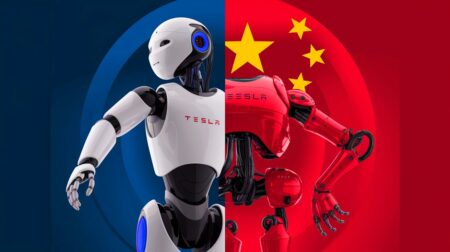| IN A NUTSHELL |
|
Porsche, the luxury German automaker, is taking a bold step in the realm of sustainability with its innovative approach to battery recycling. This pioneering initiative focuses on the recovery and reuse of valuable raw materials from high-voltage batteries used in electric vehicles. By employing cutting-edge techniques, Porsche aims to address the environmental challenges associated with battery production and use. This article delves into the multifaceted approach Porsche is undertaking to revolutionize electric vehicle production through recycling and sustainability.
High-voltage Batteries and Black Mass Production
The cornerstone of Porsche’s initiative is the strategic recycling of high-voltage batteries, marking a significant step toward a more sustainable automotive industry. When these batteries reach the end of their lifecycle, they are mechanically shredded to produce a substance known as “black mass.” This process is pivotal as it enables the extraction of precious materials such as nickel, cobalt, manganese, and lithium. To date, approximately 65 tons of black mass have been produced, showcasing the potential of this innovative recycling method.
Once the black mass is created, it undergoes further refinement to separate the essential raw materials needed for the production of new high-voltage batteries. Porsche emphasizes the importance of quality and purity in these recycled materials to ensure they meet the high standards required for electric vehicle batteries. Through this meticulous process, Porsche is setting a new benchmark in the industry for sustainable practices.
Porsche’s Ambitious Goal for Battery Cell Production
In the latter stages of the project, Porsche aims to produce high-voltage battery cells incorporating a defined proportion of recycled materials. This phase exemplifies Porsche’s comprehensive understanding of the circular economy, where valuable materials are recovered, processed, and reincorporated into new products. The automaker is testing these recycled battery cells for potential use in its vehicles, thereby closing the loop in its production cycle.
This pilot project not only highlights Porsche’s commitment to sustainability but also positions the company as a leader in the automotive industry’s shift towards greener technologies. By integrating recycled materials into its battery production, Porsche is paving the way for future advancements in electric vehicle technology, while reducing dependency on volatile and geopolitically unstable raw material markets.
Declining Food Enjoyment in the U.S. and Its Impact on Health
Extending the Lifecycle of Resources
Porsche’s initiative is not merely about recycling but is a transformative approach to extend the lifecycle of critical resources. By reclaiming and reusing battery materials, Porsche is significantly reducing the environmental footprint of battery production. This initiative is expected to spearhead further regulatory changes, particularly concerning battery requirements anticipated in the European Union by 2031.
Through early adoption of recycled materials, Porsche is contributing to a more responsible and resource-efficient manufacturing process. The company’s strategy encompasses circular economy principles, promoting the use of sustainable materials and minimizing waste along the vehicle value chain. This approach is not only beneficial for the environment but also enhances the longevity and value of Porsche’s vehicles and components.
Driving Innovation Through Circular Concepts
Porsche’s commitment to the circular economy extends beyond battery recycling. The company is actively exploring circular concepts across its entire vehicle value chain, including waste avoidance, remanufacturing of components, and the use of circular materials. These efforts are integral to Porsche’s broader sustainability strategy, which seeks to harmonize luxury with environmental responsibility.
By investing in these sustainable practices, Porsche is reinforcing its status as an innovator in the automotive industry. The initiative serves as a catalyst for change, encouraging other manufacturers to adopt similar strategies. This commitment to sustainability highlights Porsche’s dedication to reducing its environmental impact while maintaining the high standards of quality and performance associated with its brand.
Porsche’s groundbreaking battery recycling initiative is a testament to the company’s foresight and commitment to sustainability. By closing the loop on raw materials and promoting circular economy principles, Porsche is setting a new standard for the automotive industry. As we look to the future, will other automakers follow Porsche’s lead and embrace the circular economy as a core part of their strategy?
Did you like it? 4.6/5 (29)








Wow, Porsche is really leading the charge on sustainability! 🚗🌿
How does the quality of recycled battery materials compare with new ones?
Is this initiative going to affect Porsche’s car prices? 🤔
Thank you, Porsche, for setting a positive example for other automakers!
Will this recycling process be available to other manufacturers too?
Can this recycling method be applied to other types of batteries?
65 tons of “black mass” sounds like a lot. Is it really significant in the grand scheme of things?